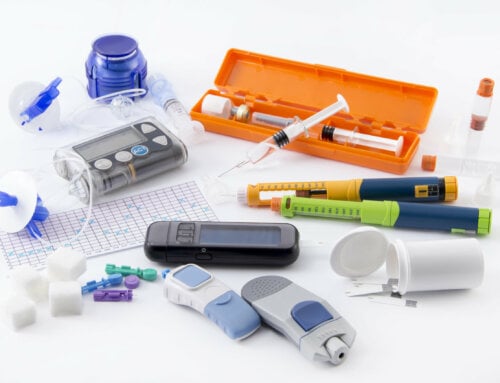Diabetes self-management includes paying attention to other health concerns that may arise. People with diabetes need to examine their urinary health and be aware of the symptoms associated with certain conditions. Learn more about how diabetes may have an impact on your urinary health and well-being.
- Urologic and sexual complications of diabetes happen due to the damage diabetes may do to blood vessels and nerves. People with diabetes especially when blood sugars are out of control are more susceptible to developing urinary tract infections and bladder problems. Men may have trouble with ejaculation or erections. Women may have issues with vaginal lubrication. Keeping your diabetes regulated can reduce the risk of the onset of these health problems.
- More than 50 percent of people with diabetes have bladder dysfunction related to damage of the nerves. An overactive bladder may cause the muscles to squeeze without warning leading to frequent urination and urine urgency. Poor control of sphincter muscles [due to nerve damage] may allow leakage or cause muscles to remain tight when urine should be released. Urinary retention occurs when your bladder muscles do not get the message it is time to urinate or your muscles are too weak to fully empty the bladder. If the bladder gets too full urine may back up and the increased pressure can cause kidney damage. This often leads to an infection in the bladder or kidneys.
- Bladder problems are diagnosed through testing such as x-rays, urodynamic testing [to check the bladder function] and cystoscopy [using a device to see inside the bladder.] Treatment for urine retention may include medication and urination on a schedule. A catheter might need to be inserted through the urethra into the bladder to drain the urine. For urinary leakage, Kegel exercises or tightening can be done to help strengthen the muscles. Surgery or medications may also be recommended.
- When bacteria reach the urinary tract, it may cause a urinary tract, bladder or kidney infection. Symptoms of urinary tract infections can include cloudy or bloody urine, a frequent urge to urinate and burning or pain during urination. Men might feel full in the rectum and women may have pressure over the pubic bone. A kidney infection may include pain in the back or side, a fever and feelings of nausea. A urine sample is checked for bacteria and pus. Other testing may include an ultrasound, intravenous pyelogram and/or a cystoscopy. Antibiotics are prescribed to clear up a urinary tract or kidney infection. It is important to drink plenty of water to help prevent future infections especially since dehydration may be associated with diabetes.
- Urine testing is used to detect issues such as ketone production especially in type 1 diabetes before it becomes a major problem. Use urine test strips at home to check for ketones from uncontrolled diabetes during illness. A rapid urine test uses strips dipped in urine for a few seconds that change colors. The color table indicates normal and abnormal values. Substances checked in a rapid urine test include protein, pH value and sugar as well as ketone, nitrate and bilirubin levels. Also checked are red or white blood cells and urobilinogen. High protein levels may indicate inflammation of the kidneys. Sugar and ketones in your urine are signs of uncontrolled diabetes. Nitrite and leukocytes in your urine may indicate a bacterial infection. Results should always be reported. Doctors may perform other urine tests include a urinalysis, urine culture and/or a 24-hour urine sample.
Being aware of your urinary health is part of an effective diabetes self-management plan. Discuss urinary testing and possible symptoms with your doctor. Early detection can help prevent more serious health problems.






Leave A Comment